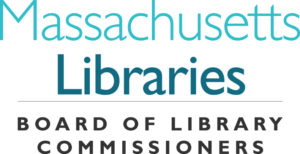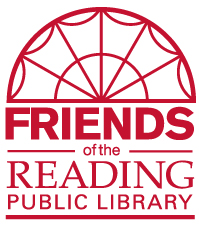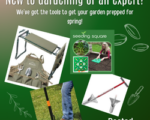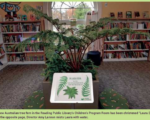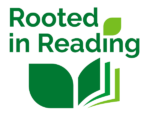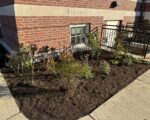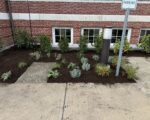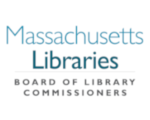Happy Spring! Time to prep your garden and the Reading Public Library can help.

News about Rooted in Reading
We're excited to share that RPL's "Rooted in Reading" grant has been recognized in a feature article in Readings Magazine! Whether you're here to study, read, or just hang out, our plant friends are working behind the scenes to make it an even better experience. We are excited to be using Rooted in Reading grant funds to put in a number of natve plants around the library. Native plants are a critical part of the food chain and strengthen the local ecosystem. As part of our Rooted in Reading grant, RPL is installing an example sensory garden. This small area highlights different ways to experience a garden. They can help people connect with nature and become more aware of their surroundings. Rooted in Reading will take place in three phases. Kicking off this fall, all gardens required planning and preparation. There is a lot to do from design to digging, from selecting plants to sowing seeds. Things that are happening for “Beneath the Surface” of Rooted in Reading The votes are in, and our new grant program will be called “Rooted in Reading.” Rooted in Reading launches one year of programming, services, and greenscape improvements to establish RPL as the horticultural hub for the Town of Reading. On July 11, The Massachusetts Board of Library Commissioners (MBLC) awarded federal Library Services and Technology Act (LSTA) direct grants to the Reading Public Library. The $20,000 grant, which runs from October 1, 2024, through September 30, 2025, will allow the Reading Public Library to further develop and expand education with garden and nature-based learning spaces.
Spotlight: RPL’s Green Initiative Shines in Readings Magazine!
Our Library Just Got Greener – Here’s Why That’s Awesome!
New Plantings: Native Plants to Support Pollinators and Birds
Sample Sensory Garden
Stage 1: Beneath the Surface (Oct-Jan)
Grant Named: Rooted in Reading
Reading Public Library awarded a $20,000 Dig In! grant
Upcoming “Rooted in Reading” Programs
RPL has physical and digital resources for you to explore. Below is a selection of titles to get you started!
Books
Library of Things
Streaming
Login with your RPL card to find more books, movies, and shows on your favorite subjects.
Databases
- Consumer Reports: Looking for a leaf blower or solar lights for your backyard? Use Consumer Reports to see trusted reviews and recommendations.
- Science in Context: All things science with over 141 topics focused on Earth and Environmental Science.
- Environmental Studies: Browse hundreds of pages covering a variety of environmental issues with articles, real-world examples, numbers, and pictures from trusted sources around the world.
Museum Passes
Get free or discounted admission to museums, gardens, and outdoor spaces at the Reading Public Library. Visit these local attractions to explore science and nature, learn gardening tips, or simply enjoy Massachusetts’ beautiful outdoor areas. Reserve your pass today!
-
- Ecotarium
- Garden in the Woods (Seasonal)
- Mass Audubon
- Massachusetts State Parks
- Museum of Science
- New England Aquarium (Seasonal)
- Trustees of Reservations
- Zoo New England
What is a Sensory Garden?
- As part of our Rooted in Reading grant, RPL has installed an example sensory garden. This small area highlights different ways to experience a garden and helps people connect with nature and become more aware of their surroundings.
- A sensory garden stimulates your senses—in this case, sight, smell, sound, and touch. The goal of a sensory garden is to encourage visitors to interact with the garden and experience it with all their senses. Example plants include perennial herbs such as oregano, thyme, and sage (smell). Other plants include Sweet Fern, which changes color in the fall (smell, sight, and touch), Lamb’s Ear (touch), and Lavender (smell). You can add chimes (sound), a solar fountain (sound), and bright seasonal blooms (sight) throughout the year.
Native Plants for Pollinators and Birds
- Native plants are a critical part of the food chain and strengthen the local ecosystem. In addition to providing food and places for birds to rest and shelter, native plants support pollinators like bees, butterflies, and hummingbirds because non-native plants may not provide enough nectar or pollen. Example plants include: Fragrant Sumac, Mountain Mint, Golden Rod, Bluestem grass, and Swamp Milkweed.
- Use RPL’s pass to “Garden in the Woods,” one of the Native Plant Trust’s eight properties in New England to learn more.
Why Indoor Plants?
- Indoor plants do more than look pretty – they’re good for your health and happiness! Having plants inside helps clean the air you breathe by removing harmful chemicals and turning carbon dioxide into oxygen. When plants are around, you’ll likely feel more relaxed and in a better mood. They can even help you focus better at work or while studying.
- Plants make any room look better and more welcoming. Research shows that people who work in spaces with plants are more creative and get more done. So whether you’re at home, work, or school, adding some green plants to your space can make a real difference in how you feel and how well you can concentrate.
RPL Plant Lab …and more
The RPL Plant Lab is a year-round series that helps kids in grades 3-5 discover the joy of gardening. Students learn to grow food from seed to harvest on our second-floor patio. In summer, they turn their fresh produce into healthy snacks. Winter activities include caring for house plants, nature journaling, and planning spring gardens.
Rooted in Reading expands the RPL Plant Lab to welcome visitors of all ages and abilities. New accessible raised beds and updated seating make our patio space more inclusive for everyone to enjoy gardening and outdoor activities.
What’s a Seed Library?
Our Seed Library offers free seeds to the community while accepting donations from local gardeners. We focus on fruits, vegetables, herbs, and flowers that thrive in Reading and support both people and wildlife. The Seed Library program makes gardening accessible to beginners and helps experienced gardeners share successful varieties with neighbors – promoting health, wellness, and community connection.
Rooted in Reading expands and showcases this wonderful, improving access to fresh produce and curating collections of locally adapted varietals.
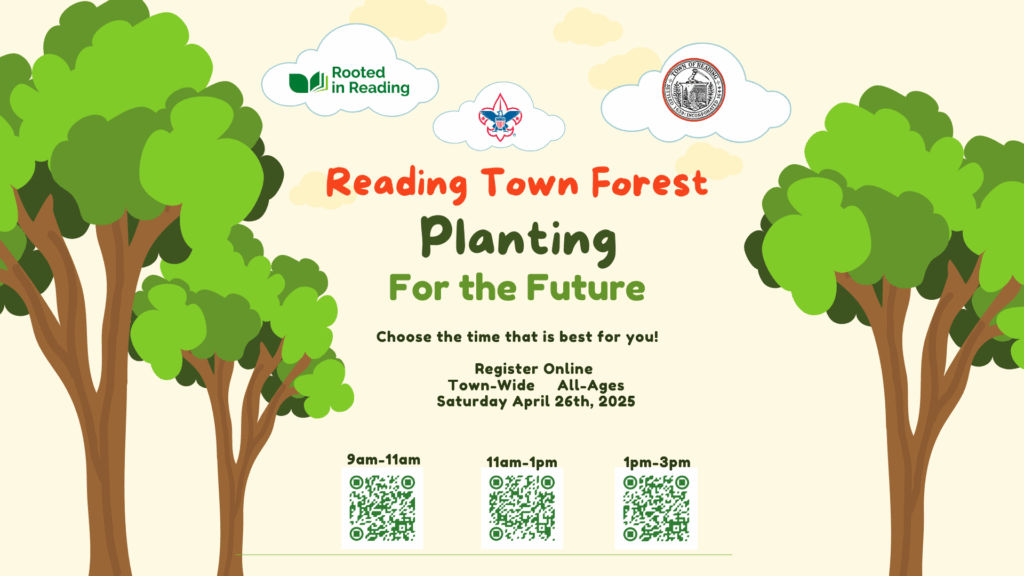
Plant a Tree!
The Reading Town Forest turns 95 in 2025, marking nearly a century as our community’s natural treasure. In addition, Reading is celebrating it’s 40th year as a Tree City USA. To celebrate these milestones, the Reading Public Library, Town Forest Committee, Department of Public Works, and Scout Troop 702 have organized a special community planting event. The community is invited to plant a tree at the Reading Town Forest on Saturday, April 26 between 9:00 a.m. to 3:00 p.m. (registration requested) Our goal is to plant 500 saplings to give the forest new life.
This event honors our forest’s history. On April 26, 1930, Reading held its first Community Planting Day, when scouts, town officials, and citizens planted 15,000 trees in just one day. They also created a special “Council Ring” at the forest’s center as a symbol of unity, which still exists today.
Volunteer as a Busy Bee!
Join RPL’s new garden club! This free club welcomes everyone, regardless of experience or time availability. All you need is curiosity about gardens and nature. The goal for our first year is to nurture the native and sensory gardens outside the library and work toward getting these spaces certified as a Wildlife Habitat.
- Join our community of plant lovers and help bring RPL’s gardens to life! Whether you have a green thumb or are just starting out, there’s a perfect spot for you in our gardening family.
- Want to dip your toes in? Sign up for occasional watering shifts. Ready to dig deeper? Share your gardening experience as we create native and sustainable green spaces at RPL. Everyone is welcome, regardless of age, ability, or experience!
- The best part? You’ll connect with fellow nature enthusiasts at our regular meet-ups and workshops. Share tips, learn new skills, and be part of a growing community passionate about nature, health, and sustainability. Come grow with us!
Join our mailing list to learn about volunteer opportunities and receive invites to meet-ups and hands-on programs. No experience is necessary; individuals and families are welcome!
There are lots of nature, health, and sustainability opportunities in Reading! Is there a group or resource missing? Please email rdgadmin@noblenet.org to submit an entry to this list.
Nature
Community Garden at Mattera Cabin: The Mattera Conservation Area is home to Reading’s Community Garden. Reading residents are eligible to rent plots to grow produce and flowers for their own use; they may also donate part or all of their crops to the Reading Food Pantry.
Crystal Garden Club of Reading/Wakefield
Health
Reading Coalition for Prevention and Support
Board of Health: The mission of the Reading Board of Health is to protect and promote the health and well-being of the citizens of Reading and the quality of the environment.
Sustainability
Rooted in Reading is made possible by grant funds from the Institute of Museum and Library Services as administered by the Massachusetts Board of Library Commissioners. Additional support is provided by the Friends of the Reading Public Library and the Reading Public Library Foundation.
